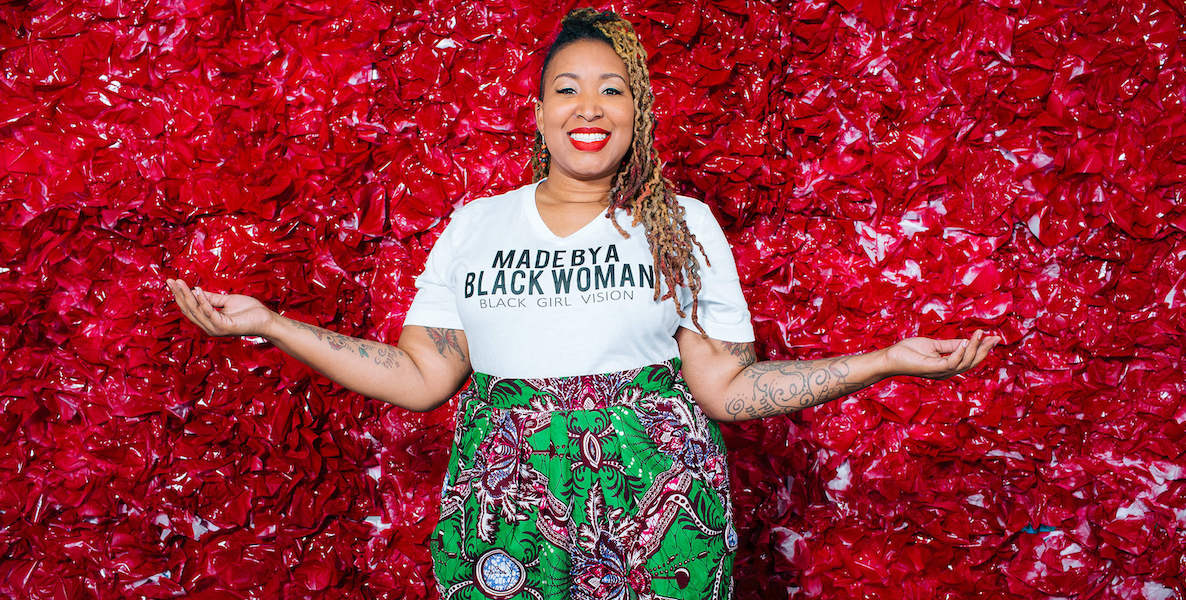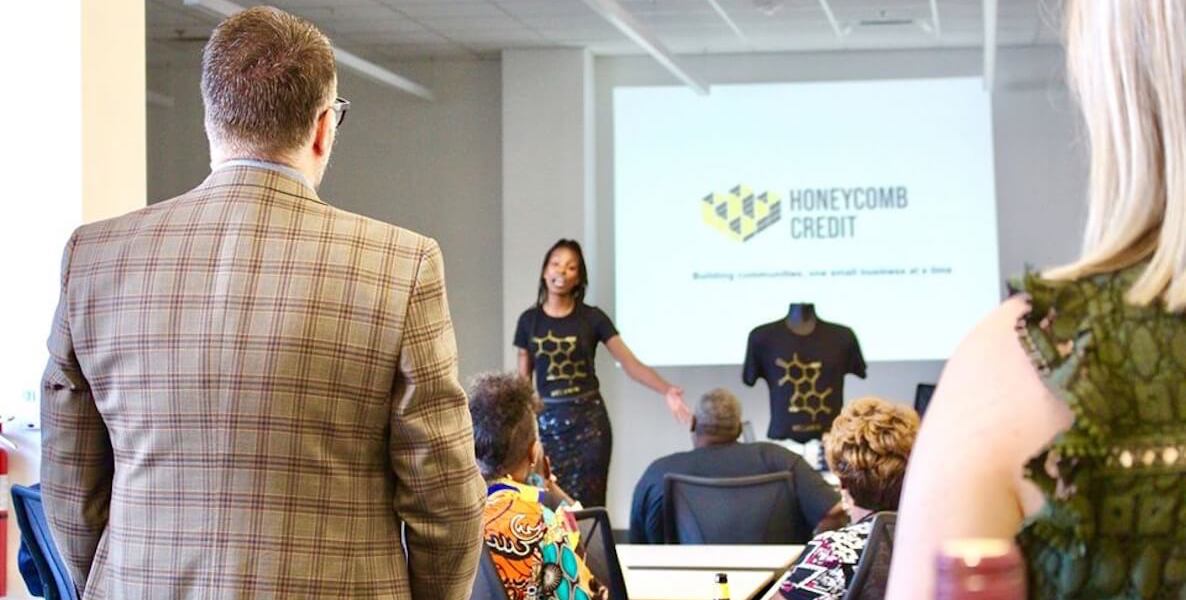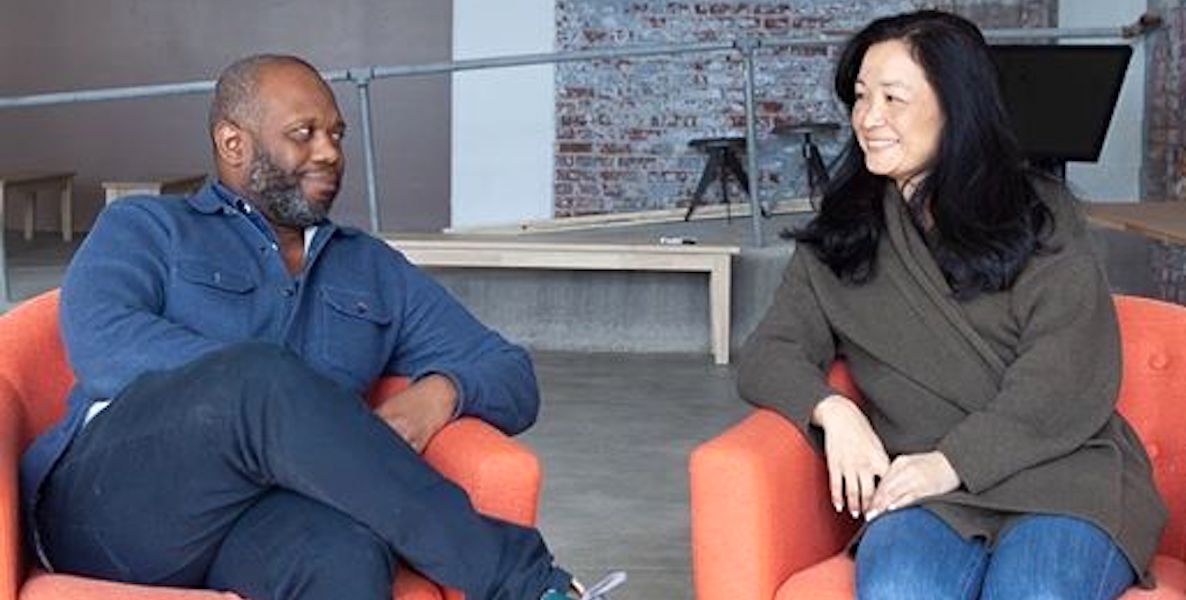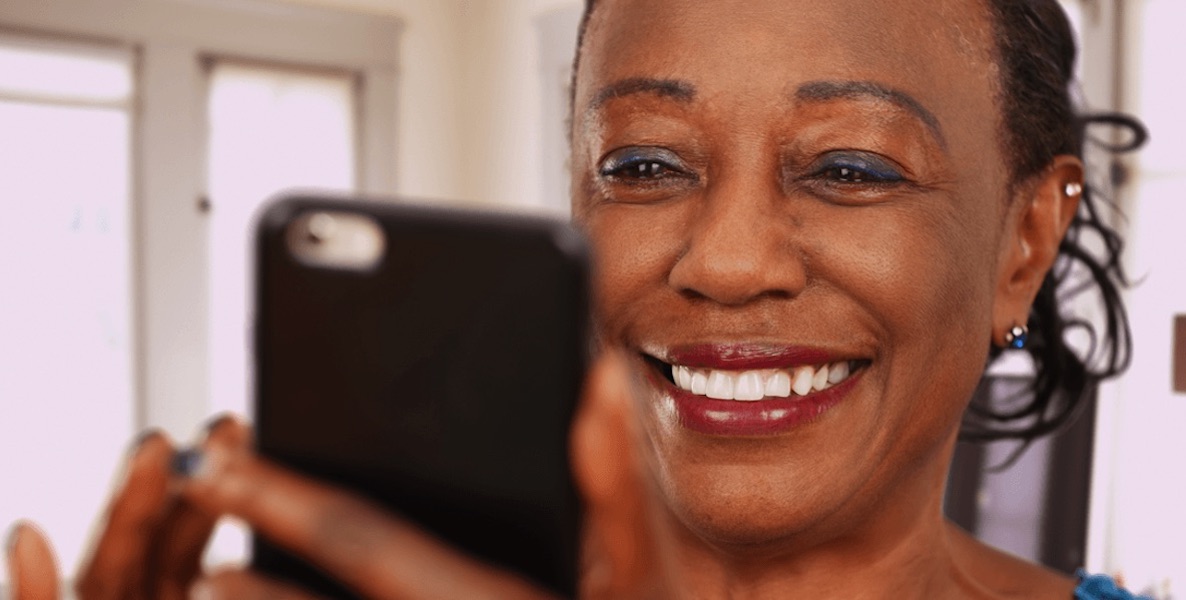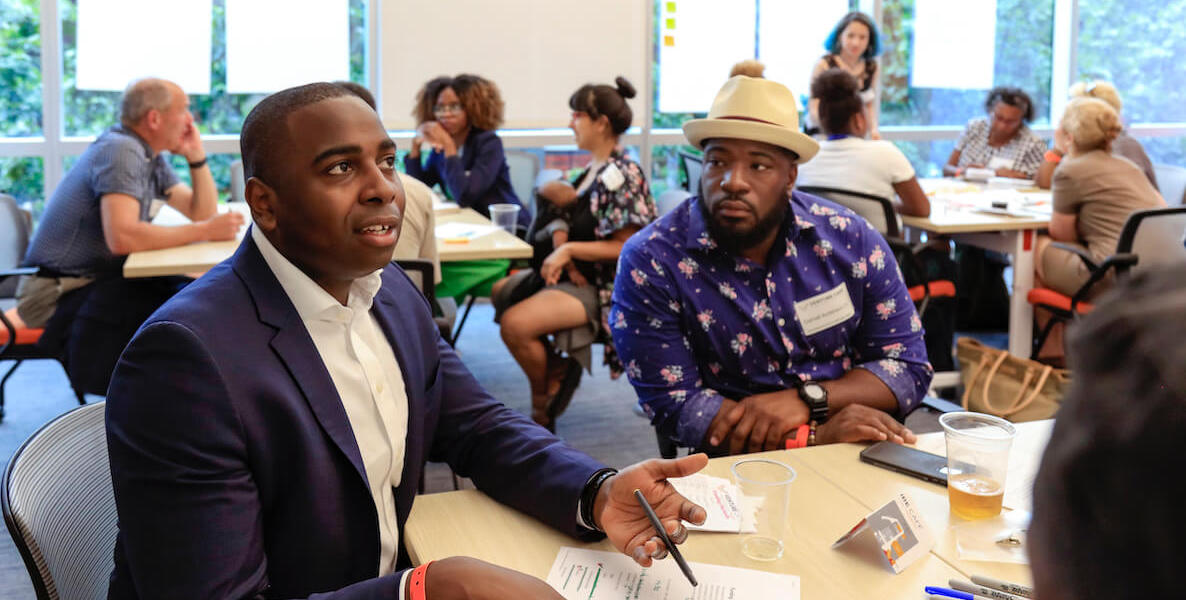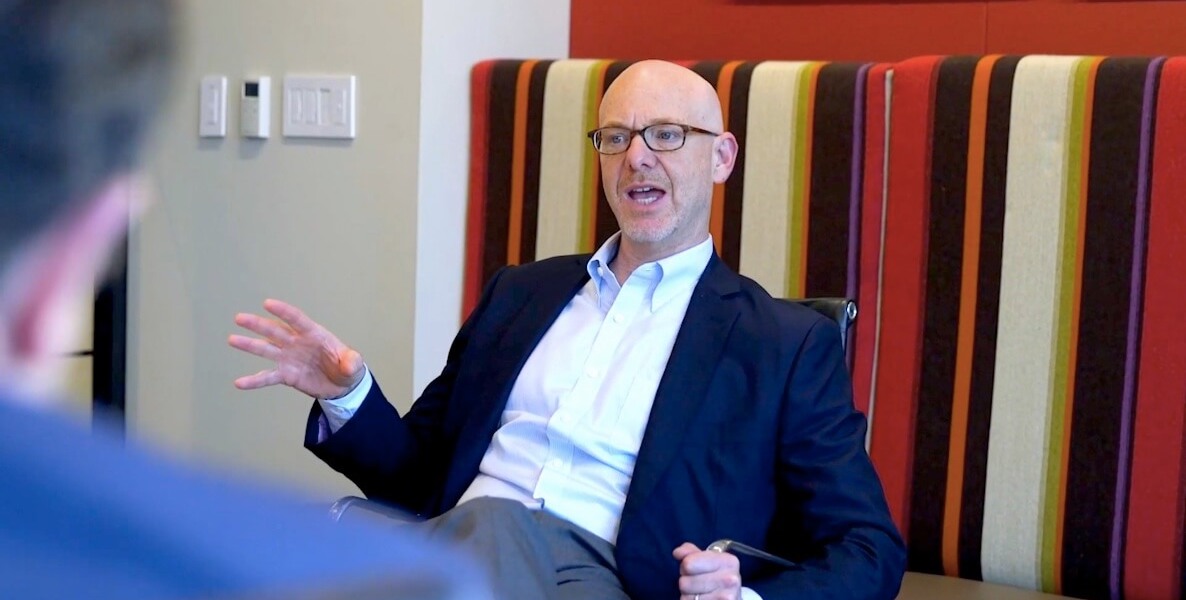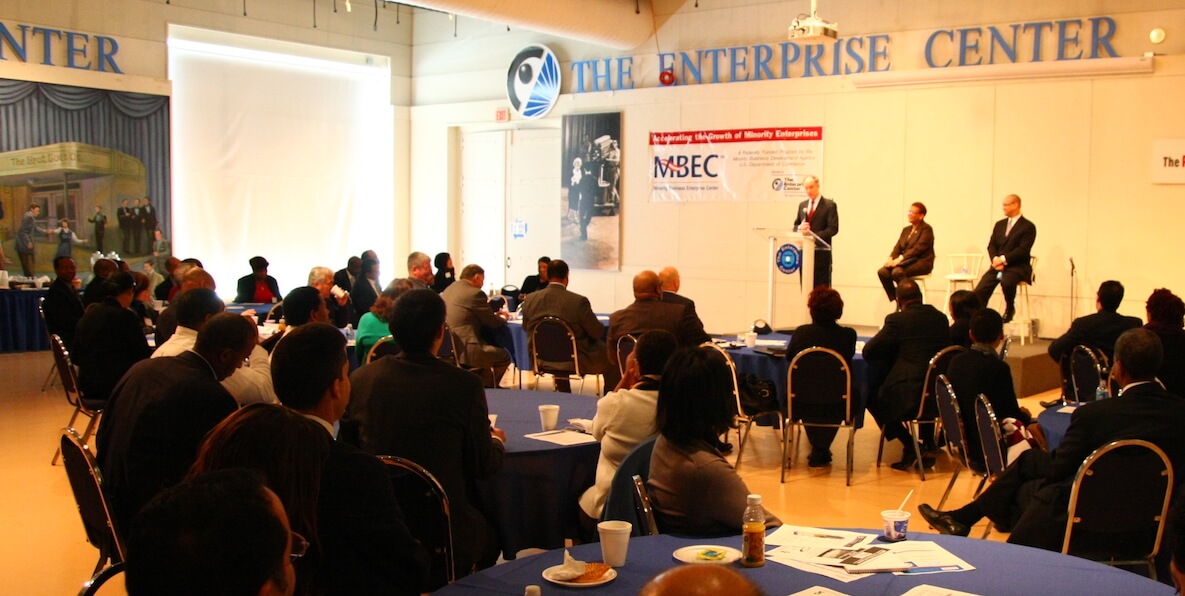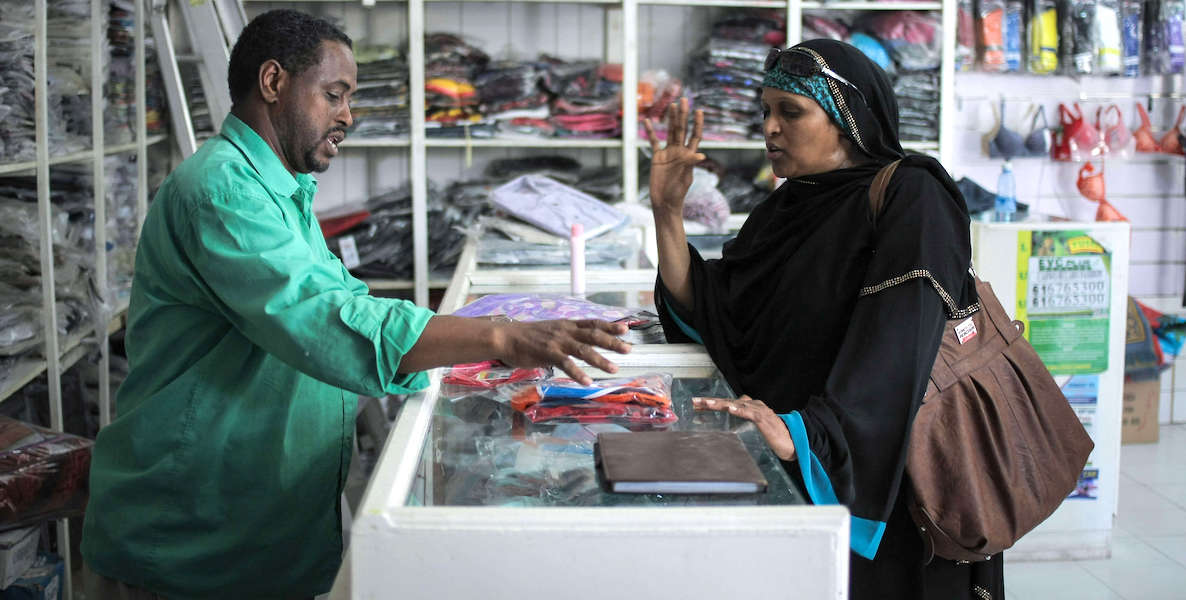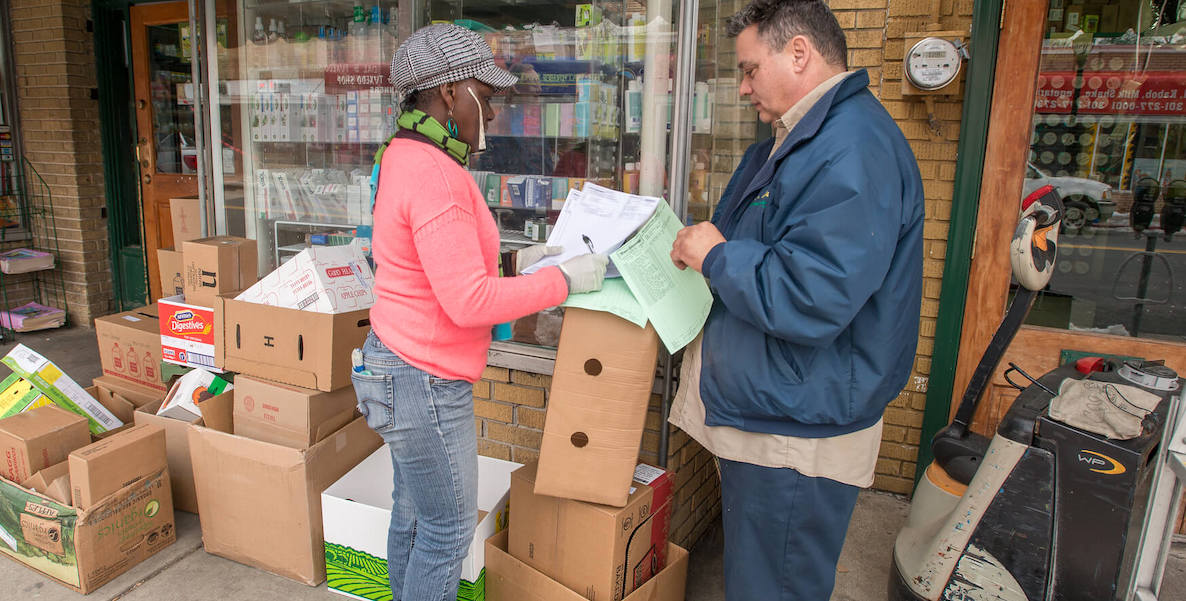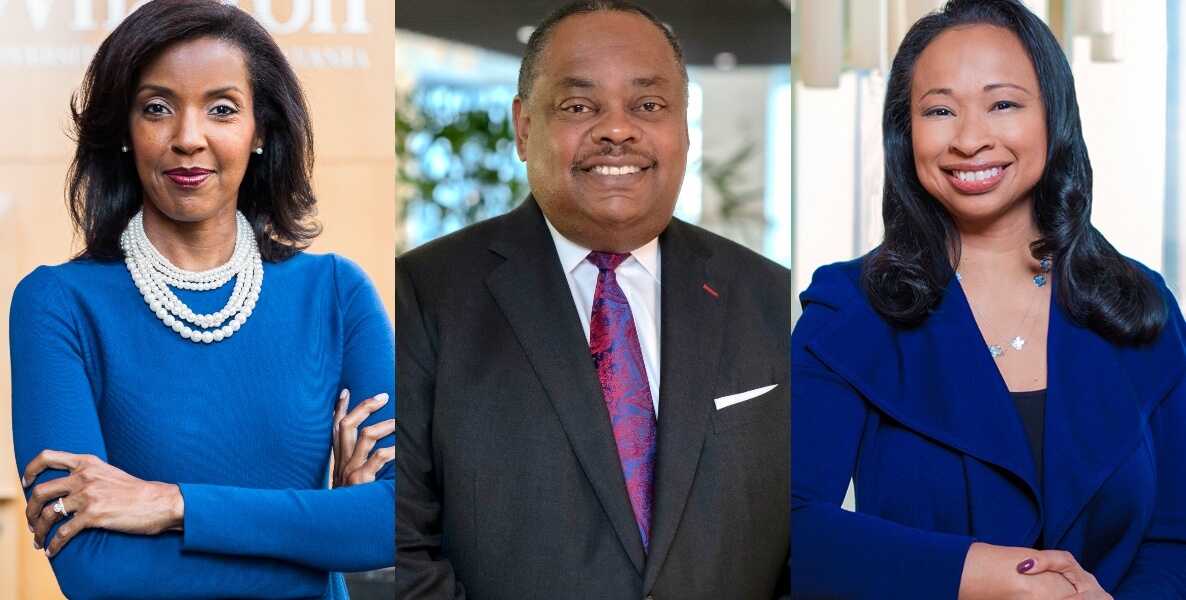She’ll never be mistaken for Cuba Gooding Jr., but Della Clark is kinda our very own Rod Tidwell, the flashy wide receiver played by the actor in Jerry Maguire, whose catchphrase caught on back in the ’90s:
Clark runs West Philly’s The Enterprise Center, where she has provided economic development opportunities to minority entrepreneurs for the past 28 years. Of late, she’s been our most prominent Tidwell-like character, shouting a version of “show me the money” in every conversation that considers how to bring the city back from the economic effects of Covid-19 and its cousin, the virus of structural racism.
She is a force of nature, and lays out the problem with a sense of urgency. Philadelphia is 45 percent African-American, she’ll say, and yet only 2.5 percent of businesses are owned by Black people. (Six percent if you count sole proprietorships.)
This is not the natural state of things, Clark reminds us. It is, rather, the direct result of conscious policies, which is why she’s planning a $50 million private equity growth fund, the first of a series, “focused on unleashing the unrealized value of minority-controlled businesses.”
“We want our small businesses to be leaders in urban communities, so they can help move the needle on poverty.”
There she was, a couple of weeks ago, throwing down with Center City District CEO Paul Levy and Brandywine Realty honcho Jerry Sweeney, two of our foremost evangelists for inclusive economic growth. Recently, I moderated a discussion about Philly’s recovery that featured heavy hitters like FS Investments’ CEO Michael Forman, Drexel University President John Fry and labor leader Ryan Boyer, and the talk turned hopeful when Forman raised Clark’s plans.
I caught up with Clark earlier this week. What follows is an edited and condensed version of our conversation, which began with a discussion about how we got here, and what the need ought to be, going forward.

Larry Platt: I’m always stunned by the dearth of Black-owned businesses in Philadelphia. What is your analysis as to why that is?
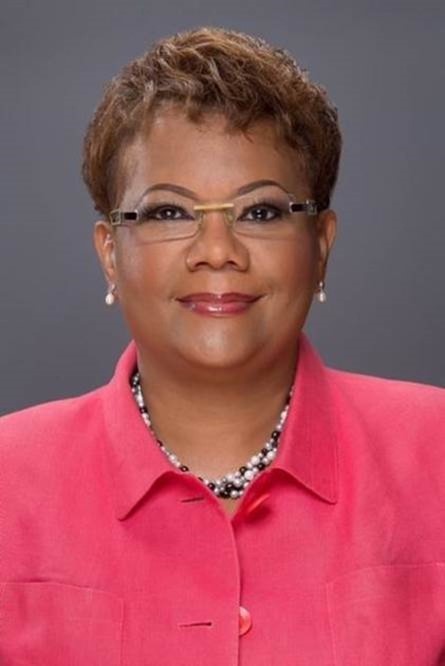
Della Clark: After being with The Enterprise Center for 28 years, I’ve seen how distressed communities versus prosperous communities are looked at by public policy officials and funders. They’re looked at from a standpoint of deficiency. They always think the answer is a matter of training, more training, and more training. They don’t come with investment capital. I added it up once, all the money we’ve gotten at The Enterprise Center earmarked for workforce development and skills training, and said to myself, ‘What if all this money was invested in entrepreneurs instead?’
The traditional, non-minority entrepreneur goes to family and friends to aggregate startup capital, and that allows them to test proof of concept. They get traction and can then grow into the angel investing world, and then maybe the equity world. They have access to patient capital to grow and scale.
Minority entrepreneurs don’t have that access. They start out undercapitalized and with high cost debt.
LP: You’re pointing toward a structural difference when it comes to opportunity. Black entrepreneurs don’t start from the same starting line as whites.
DC: Do you know what the number one margin eater is for minority small businesses? The cost of capital. We don’t have access to private equity and venture capital and can’t get banks to lend to us except in small amounts.
LP: There are 5,000 banks in America, and only 21 are owned by African-Americans, with a focus on small business minority lending.
DC: That’s right, that’s right. So I can’t tell you how many small businesses have to go to predatory lenders, and they’re paying $10,000 to $20,000 a month in interest-only payments. That’s money that could go to investing in employees or competitively bidding on jobs. But they can’t. And we’ve responded to this with program after program, instead of with capital.
![]() LP: I read one study that found that most government-run workforce development programs don’t actually fuel economic growth.
LP: I read one study that found that most government-run workforce development programs don’t actually fuel economic growth.
DC: But it’s always easier to announce a program than to invest real money.
LP: So tell me about Innovate Capital Growth Fund, which you’re developing with NewSpring Capital as a mentor.
DC: We’ve submitted our application to the Small Business Administration for a Small Business Investment Company license. SBICs supply small businesses with financing in both the equity and debt arenas. And that will make us eligible in the future for leveraging federal funds.
This first round will be a $50 million fund that will identify 15 to 20 scalable firms and invest an average of $2 million in each. But $50 million won’t move the needle in Philadelphia. Ultimately, we see it as a $200 million fund over the next five years.
LP: And what do you mean when you say you’ll be providing minority small businesses with “the 4 Cs”?
DC: Capital, contracts, capacity and community. In addition to the capital, we will facilitate contracting opportunities and assist with planning for capacity building, so we can help each firm grow. And we want our small businesses to be leaders in urban communities, so they can help move the needle on poverty. When an elementary school in the neighborhood needs winter coats, we want to call these business leaders to step up and bridge that gap. We are going to encourage them to participate and invest in community revitalization.
You know the book, Scaling Up: How a Few Companies Make It…and Why the Rest Don’t, by Verne Harnish? He talks about three types of companies. One is the mice—minority, sole proprietor businesses.
LP: The majority of Black businesses in Philadelphia are owned by sole proprietors.
DC: That’s right. They’re mice, and usually they mature into family businesses. The next level is the Gazelle—growing businesses, but still with a lot of issues. Then there are the Elephants—they can carry a region. They have a multiplier effect on purchasing, employment and lowering poverty. We don’t have enough minority enterprises that are Elephants.
“In August, McKinsey reported that $6.8 billion had been announced, but how much of that was just Twitter talk or PR releases? How much had actually been disbursed to African-American entrepreneurs and their communities?”
LP: Yet, ever since George Floyd, we have seen companies step up and announce big capital infusions for inclusive growth.
DC: Announce is the key word. In August, McKinsey reported that $6.8 billion had been announced, but how much of that was just Twitter talk or PR releases? How much had actually been disbursed to African-American entrepreneurs and their communities?
LP: I remember you telling me we don’t have a commitment to African-American businesses the way we do for African-American athletics.
DC: There are two industries where African-Americans have thrived, music/entertainment and sports. I always use sports because it translates well. You take a young man when he’s between six and 10 years old, and you get him in Little League baseball or AAU in basketball and pass him along, coach to coach. They’ll say, ‘Larry’s a great dribbler, but he’s got to work on his shot,’ and they’ll coach you up.
That doesn’t happen in entrepreneurship. No one says, ‘Della’s a really good candle maker, but she’s got to learn how to read a P&L.’ And, remember, most entrepreneurs are not A students. Many haven’t even gone to college. Well, LeBron didn’t go to college, either. But he got the expertise, and look at him today. He’s an Elephant.
We don’t think of entrepreneurship as a career path, because the ecosystem for entrepreneurship has a flaw. We’ve left out capital. If you infuse entrepreneurs with capital, they can become Elephants.
LP: Where’d your entrepreneurial spirit come from?
DC: I grew up in Texas, so I think big. My father was an entrepreneur. He was an African-American contractor. He did flooring. And at the dinner table, I’d hear all about the lack of capital, about the structural racism, about lack of opportunity. Little did I know that was prepping me for my future. You have to live the experience, which a lot of bank officers and investors don’t have.
![]() LP: This would be your first fund of this kind, but not your first foray into getting capital to African-American businesses. Tell me about what you’ve done with Jerry Sweeney of Brandywine Realty, who, like you, is really an advocate for jobs and growth fueling social change.
LP: This would be your first fund of this kind, but not your first foray into getting capital to African-American businesses. Tell me about what you’ve done with Jerry Sweeney of Brandywine Realty, who, like you, is really an advocate for jobs and growth fueling social change.
DC: I reached out to Jerry when he was developing Schuylkill Yards, to try and make sure minorities partake in the growth generated by that project. Together, we started the Grow Philadelphia Fund, which stepped up to respond to Covid-19 and which distributed $600,000 in loans for minority general contractors at 1 percent interest.
And now we’re working with Social Venture Circle to help janitorial firms pivot during Covid-19. There are 126 minority janitorial firms in Pennsylvania, and approximately 32 in Philadelphia. We’re helping them get the capital, equipment, PPE and expertise they need to get into sterilization, to be the businesses that restaurants, schools and offices turn to to make sure their workplaces are bacteria free.
LP: You’ve said you hope to close on the first round of the Innovate Capital Growth Fund early next year. What are the obstacles that you need to overcome?
DC: It’s no secret that no one likes to invest in a first time fund. We have to get over that hurdle. And we are. I’ve got soft commitments for about $10 million right now. There are also not many minority-led SBIC funds. Of the 350 SBIC licenses that are given out, less than five are held by minority-led organizations. So that’s another glass ceiling we’re breaking.
LP: I know from our past conversations that you have firsthand knowledge of hundreds, maybe thousands, of Black-owned firms in need of major capital infusion. I take it you’ll have no problem identifying firms to invest in?
DC: Oh, goodness, yes. Because of unequal access to capital, we’ve turned African-American entrepreneurs into risk managers instead of growth innovators. That’s what we have to turn around.
LP: Finally, I’ve always thought it’s appropriate that you renovated the original site of American Bandstand at 46th and Market into the headquarters of The Enterprise Center.
DC: Yeah, I got me some moves, but in business, not music.
Header photo courtesy of The Enterprise Center


